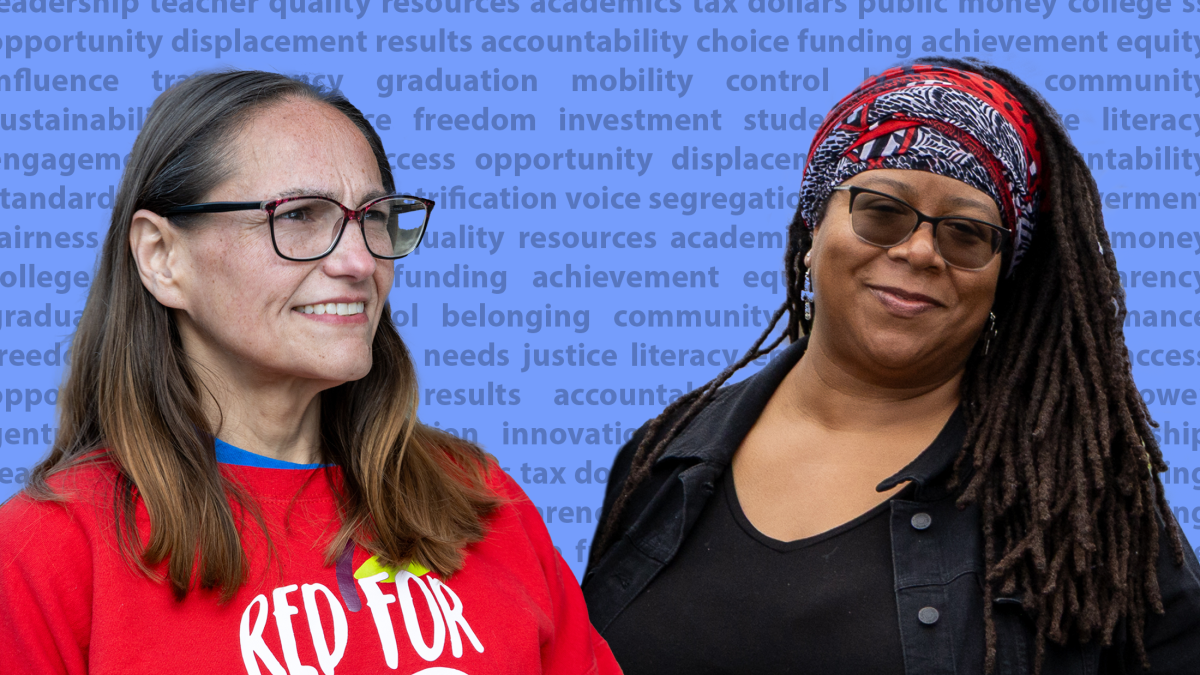
LaToya Tahirou’s oldest daughter started struggling in school around third grade. She was in a Spanish immersion program in Indianapolis Public Schools. Tahirou thought maybe learning a second language was too much for her, so she moved her to a new school.
But Tahirou said her daughter experienced learning loss, and she couldn’t catch up. Her daughter transferred several more times and eventually graduated from a charter school.
Today, her two youngest children are excelling. They both attend Paramount Brookside, a charter school on the near east side. Tahirou chose the school because of its academic performance with Black students. She said the school can make a real difference.
“It’s the educational experiences, the way the curriculum is taught to be made engaging and fun and thought provoking versus just boring and humdrum, with a teacher standing and spitting off effects and then testing you over those facts,” Tahirou said.
This is a pivotal moment for schools in the city — particularly the Indianapolis Public Schools district.
A shift in student enrollment is creating financial strain on IPS, and Gov. Mike Braun just signed a law that requires the district to share local property tax funds with nearby charter schools. Both issues heighten a long-running debate: how best to serve students, especially children of color and those from low-income families.
For nearly two decades, Indianapolis has debated how — or whether — to reform its public schools, with charter schools at the center of the fight. Supporters see charters as the best way to support minority students with individualized attention and flexible curriculum. Critics argue charters lack the same accountability as traditional schools and siphon funding away from neighborhood schools, destabilizing the district.
Now, with increased pressure on IPS to collaborate with charters and share resources with non-district students, the stakes are higher than ever. Two Indianapolis moms represent the heart of this conflict. Both want what’s best for their children — and all children — but they’re on opposite sides of the debate.
A mom’s search for the right school
With her two youngest children thriving, Tahirou is passionate about Paramount. Her youngest son, LaBron, is in sixth grade. He says his favorite part of school is the relationships he has with his teachers.
“They're really nice in some kind of weird way,” LaBron said. “I'm rarely in trouble there, but like, if I am in trouble, they're always super kind and caring. Like a best friend, kind of.”
Tahirou says the biggest difference between her oldest daughter’s education and her younger children’s experiences at Brookside is the teaching style.
She believes that teaching style helps create a genuine love of learning. LaBron’s favorite subject is writing, and he talks about starting a book club with his friends.
“You know, by third grade, if a child is not reading proficiently, they say they're making a jail cell for them,” Tahirou said of an often repeated myth connecting incarceration and low literacy. “So for me to know that my son, a young black boy who comes from the hood, loves reading and loves learning … like as a mom, it just makes my heart turn and spin.”
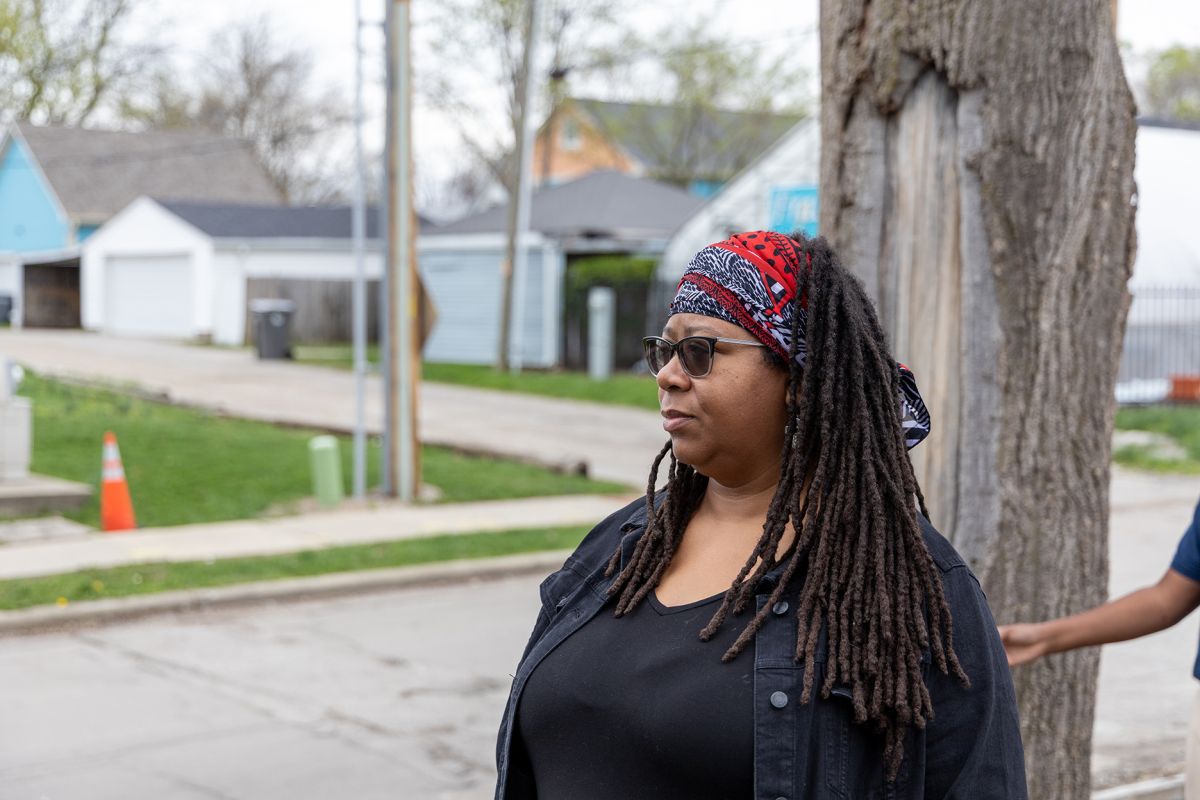
To Tahirou, choosing a school that fits her child’s needs is an equity issue. If a family doesn’t live in an area with quality neighborhood schools, she believes that shouldn’t be their only option.
“If you take away a person's choice, then you keep them in a box,” she said. “I think it's always good to have freedom of choice.”
Tahirou wants all types of public schools in Indianapolis to receive equal funding. She also believes schools should adopt teaching practices that are proven to help students of color. The IPS district, she says, should help replicate more schools like Paramount.
At Paramount Brookside, 86% of Black students passed the state’s elementary literacy exam, IREAD, in 2024. In IPS, only 55.4% of Black students passed the test. Paramount’s pass rates for Black and Hispanic students on the English and math portions of the state assessments were also considerably higher.
Yet, only 50 Black students at Brookside took the IREAD, compared to more than 640 Black students in all schools directly managed by IPS.
In 2016 Tahirou became involved with the local office of Stand for Children, a national education reform advocacy group. The organization supports charter schools and believes more students of color need access to quality education. For more than a decade, 501(c)(4) organization or political action committees affiliated with Stand for Children have also funded campaigns for candidates running for seats on the IPS Board.
Tahirou is now a well-known advocate for school reform. She wants schools that address inequitable learning outcomes to be replicated — and funded equally to traditional public schools. She regularly speaks at IPS board meetings, where she’s advocated for a partnership between IPS and Paramount.
Clashing voices in a public forum
But there’s another side to the debate — and one of its most prominent voices is another Indianapolis mom: Christina Smith.
Last May, both mothers attended a special meeting of the IPS Board — it was somewhat informal with the public and board members discussing a resolution on charter school collaboration.
Smith and Tahirou sat in a small group with two board members and other parents. Smith criticized Paramount for its out-of-school suspension rate, which is above the rate for IPS. She also claimed parents who advocate for partnerships with Paramount do so only because Stand for Children tells them what to say.
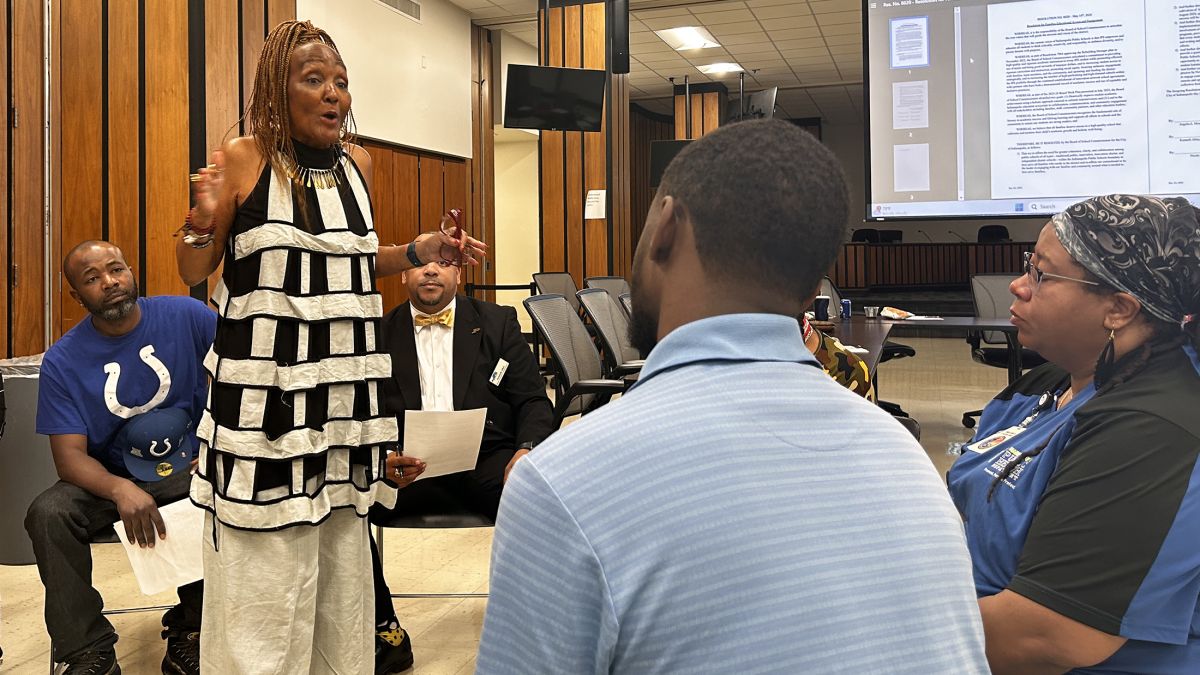
Parents who collaborate with Stand for Children often read from notes to help them speak in public. Tahirou broke down in tears.
“No school model is perfect but they are doing a great job,” Tahirou said to Smith at the meeting. "If I am reading from the script and you are saying I’m robotic, it’s because I can’t remember. I need to read it. Because I can't remember. I didn’t get the greatest education.”
A mom’s fight for fully public education
Smith is also well known for advocating for traditional public schools. She believes they should be fully funded and governed by publicly elected school boards. She’s concerned that the growth of charter and innovation schools divides resources and weakens the IPS district.
Smith was co-founder of the former IPS Community Coalition, a group that backed anti-reform board candidates and was highly critical of IPS leadership and the school board. In 2020, she challenged IPS Board District 4 incumbent Diane Arnold and narrowly lost the election.
She attends most IPS board meetings and often uses the few minutes allotted for public comment to criticize Republican lawmakers, advocacy organizations like The Mind Trust, and sometimes individual school board members.
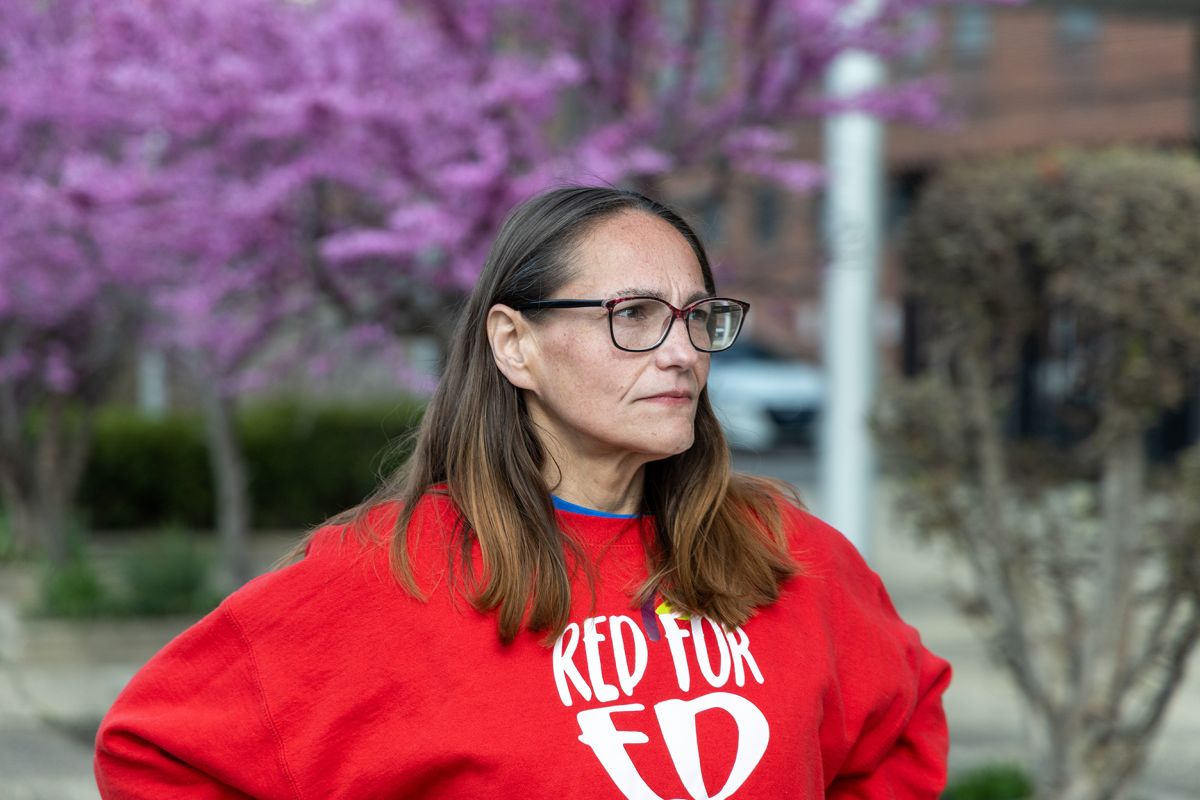
"These organizations that claim to be dedicated to poor kids like mine, Black and Brown kids seeking better educational outcomes, are fighting against fully funded, fully public schools for all," Smith said at a recent school board meeting.
In recent months, she’s used social media to expand her reach and connect with other advocates, including those protesting against the Trump administration’s education policies.
Smith recently made the news when she was arrested at the Indiana Statehouse on suspicion of disorderly conduct during a demonstration in March. All charges were dropped.
Charters, innovation schools, and outside influence
Smith's advocacy began differently from Tahirou’s. When one of her children tested into a high-ability magnet program that was already full, she learned some admitted students didn’t live in the district. She reached out to her board member — and the school added another class.
“That was like my first foray into advocating,” Smith said.
In 2016, Cold Spring Elementary — where her other child was enrolled — transitioned into an “innovation school.” It remained part of IPS, but a nonprofit organization would now oversee its operations.
Smith says the school promised more programming, but parents weren’t consulted — and she wasn’t convinced the changes would help students.
“It was like, this is the plan. Get on board or get lost,” said Smith, who leads the Indianapolis Education Justice Coalition. “That was very much the sentiment that was portrayed to parents.”
The shift at Cold Spring was part of a larger IPS strategy to give individual schools more freedom, and let others have access to district resources. That includes partnering with charter operators and letting some schools become innovation schools, a change that allows autonomy and control of their own curriculum and staffing.
"Why would we do this?," Smith said. "Like, why would we become an independent organization?"
Since 2016, the share of IPS students attending charter schools has grown from nearly 8% to 35.4%. IPS now partners with 24 charter schools.
Smith believes those partnerships reduce oversight and divert funding from schools directly managed by the district. When a student moves to a charter partner school, their funding goes with them.
“So if we're gonna operate this dual system," Smith said. "Then the accountability and the rules and laws and regulations need to be the same on both sides."
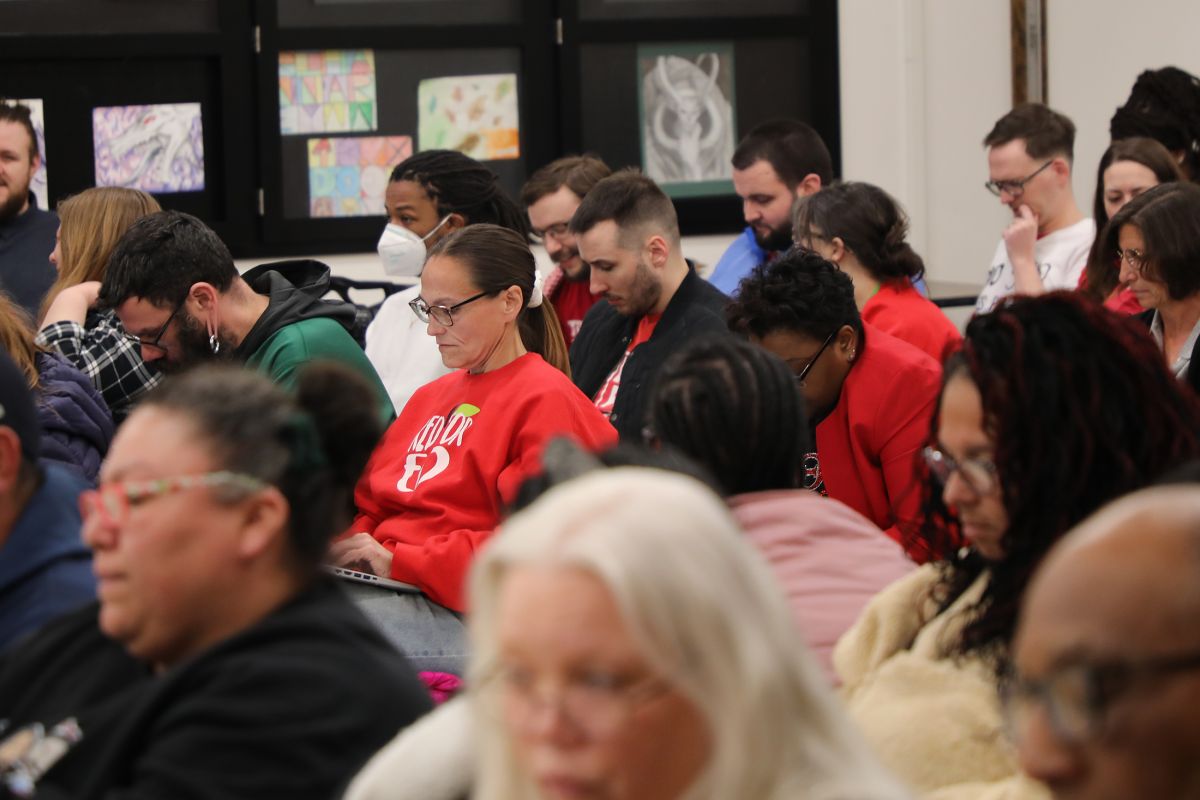
Smith, during the early days of her advocacy, researched how the idea for IPS to work with charter schools gained traction. And she found that national charter advocates — including former New York City Mayor and philanthropist Mike Bloomberg — have financially backed some of the local reform movement and school board candidates.
"Where's their money coming from?," Smith said. "You know, because the parents, the activist parents, they don't have money. Like, so where are you getting your money? You know?"
Two moms, two visions — but one shared goal
Smith said that while she supports fully funded and fully public schools in principle — she isn’t against charter or innovation schools. Her own children attend a charter school that partners with IPS. But she believes the current system cannot sustainably support both types.
"We automatically create this competition that doesn't need to be there," Smith said. "In an ideal world, all of our schools will be fully funded, and it would be fully public, right? And we wouldn't have to have this, like market based system."
The fact that Smith is a charter school parent often surprises people — especially those who view her as a staunch opponent of school choice. And some see it as a contradiction: How can someone who criticizes charter expansion enroll their children in a charter school?
But Smith says her decision reflects the same pressures many families face — finding a school that fits her children’s needs, even if it is outside the traditional school system.
“We've participated in choice every single time, every step of the way, so how could I not want choices for other people?” Smith said.
And on that point, she and Tahirou agree: school choice isn’t a luxury — it’s a necessity.
“I believe choice is a critical thing because what works for me may not work for my next door neighbor,” Tahirou said.
These two Indianapolis moms may stand on opposite sides of a charged public debate — but they share the same goal: ensuring all children have access to a quality public education.
WFYI education editor Eric Weddle contributed to this story.
WFYI education reporter Sydney Dauphinais covers Marion County schools. Contact her at sdauphinais@wfyi.org.
 DONATE
DONATE

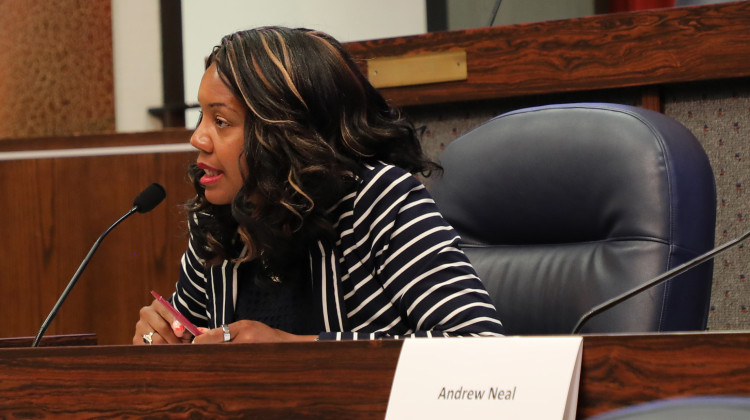
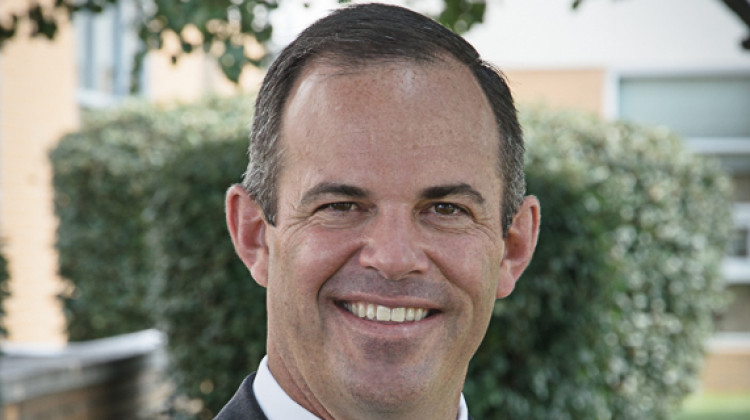


 Support WFYI. We can't do it without you.
Support WFYI. We can't do it without you.